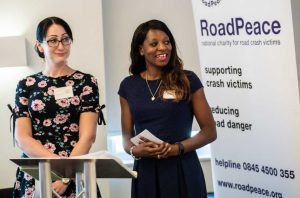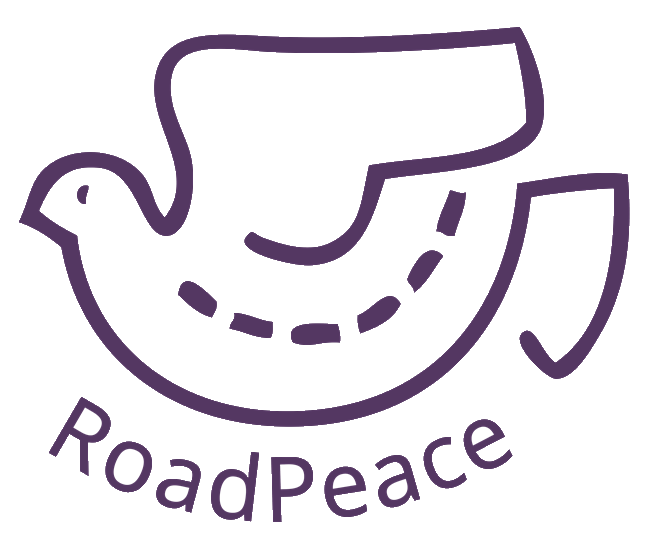This year, on International Women’s Day, RoadPeace, the national charity for road crash victims, is celebrating decades of tireless work by women campaigners for an end to the trivial treatment of road danger and the resulting enormous suffering and cost.
- The scale of road deaths and injuries
In Britain in 2019, there were 1,752 reported road deaths and 25,945 people were reported seriously injured. The scale of the devastation is such that in Britain the number of road deaths exceeds the number of deaths due to homicide and terrorism combined.
- Lack of proper acknowledgement
This enormous number of casualties that affects to a great extent the young: our future (Road injuries are now the biggest killer of children and young adults worldwide, according to the World Health Organization (WHO), is treated with a shocking disregard, so that this issue does not receive the necessary acknowledgement and resources to tackle it effectively. Crashes are often still referred to as accidents, and there is little media attention given to these preventable killings caused most frequently by law breaking and road violence. For example, no national media outlet covered the annual casualty statistic data release in September 2020, which revealed that road casualty numbers had remained at the same level since 2010.
- Lack of priority
And the lack of acknowledgement translates into lack of priority. The government has not had casualty reduction targets since 2010, despite having targets for many other initiatives. It has committed to net zero carbon emissions by 2050, and has set specific interim targets around waste reduction and water consumption. Quite clearly the issue of road death and injury is not deemed important enough by the Government to receive a similar attention. The Home Office does not include road crime in its list of priorities, therefore traffic policing lacks proper funding needed to tackle road danger and a serious investigation of all crashes that could not be prevented.
- Lack of support
Road crash victims are not supported in the same way that victims of other crimes are. Although a road death is no less traumatic than a homicide, bereaved families do not receive a caseworker in the same way a family bereaved by homicide will. Funding for supporting crash victims is also limited, with no funding provided by national government, and few Police and Crime Commissioners awarding funding to road crash victim support services.
Celebrating women campaigners
RoadPeace on International Women’s Day is drawing attention to the women who have campaigned to end the discrimination that crash victims face, and the struggles they have gone through in order to achieve that road death and injury receive their proper priority.
Cynthia Barlow OBE

Cynthia’s only child and daughter, Alex Jane McVitty, was tragically killed on 7 June 2000, aged 26. She was cycling in the City of London when the driver of a concrete mixer lorry turned left across her path.
Cynthia’s experience of the investigation, inquest and the court proceedings were painfully disappointing and isolating. She was compelled to carry out her own analysis of what had happened and drew her own conclusions of the responsibilities that needed to be taken by the driver and by his employer. She bought shares in the company and attended their Annual General Meeting, speaking out about what had happened to her daughter and offering suggestions for what the company should be doing to prevent further injuries or loss of life.
Cynthia’s determination and courage was met by the company agreeing to work with her to improve their vehicle and driving practices. Since then, Cynthia has been involved in many areas of road danger reduction, but is especially engaged in the dangers of HGVs to cyclists and other vulnerable road users and the responsibilities of freight operating companies. You can read more about Cynthia’s experiences in this testimony to her daughter –
Brigitte Chaudhry MBE, Founder & President RoadPeace

RoadPeace was set up on 8.2.1992 by a bereaved mother – Brigitte Chaudhry, whose son Mansoor was killed in October 1990, when aged 26, by a red light violator who was merely fined £250 for a minor traffic offence, the death was not mentioned.
Brigitte worked tirelessly- full time for the first 16 years until 2008 – to develop and establish the first UK charity for road traffic victims and its vital campaigning priorities for justice for road victims. RoadPeace received charitable status in April 1993 and Brigitte received an MBE for her work for RoadPeace in March 2003. https://www.roadpeace.org/wp-content/uploads/2017/10/Hidden_Victims.pdf
From 2004 – 2010, she was the president of the European Federation for Road Traffic Victims – FEVR – an umbrella organisation with UN ECOSOC status of which RoadPeace was an active member, with Brigitte the delegate, from 1993 onwards.
In 1995, on Brigitte’s initiative, road victim organisations in Europe and on other continents began to observe the World Day of Remembrance for Road Traffic Victims, a Day adopted by the UN in October 2005 and now observed worldwide, offering much needed recognition to road traffic victims. Brigitte is the author of the World Day website and was its editor until 2017. https://wdor-archive.com/
Pauline Fielding MBE

As a trustee for RoadPeace, the national charity for road crash victims, Pauline has worked tirelessly for safer roads and better support for road crash victims.
Pauline’s resolve to prevent death and injury, started in 1994 when her son Andrew was killed by a driver who did not stay at the scene and who was never traced. The devastation experienced by Pauline and her family left her resolved to prevent this happening to others.
It took five years, but with the support of local MPs, councillors, RoadPeace and her friends, family and the community, the speed limit on the road was reduced from 60mph to 40mph.
Pauline continued to campaign to make the junction where Andrew died safer. Finally, 26 years after his death, the council approved a plan to reduce dangers at the junction by the installation of traffic lights.
Pauline has also set up RoadPeace North West, a support group for crash victims in the region. She also organises two remembrance services every year in Liverpool.
Alongside the support groups and the remembrance services, Pauline through the North West group works in conjunction with the Merseyside Road Safety Partnership, bringing together the police, emergency services and councils to reduce death and injury on the road.
Lucy Harrison and Elaine Gordon

RoadPeace members, Lucy Harrison and Elaine Gordon have successfully campaigned for new guidance on post-mortems. Each had their sibling killed in a road crash, and their grief was compounded by weeks of waiting for second post-mortems.
The pair were driven to find the answer to this question: Why were defendants allowed to ask for a second post-mortem, when the first had proved conclusive? Especially given the pain that is inflicted on bereaved families who have to wait to lay their loved ones to rest.
Campaigning on the issue since 2017, all of their work has paid off with new guidelines issued by the Chief Coroner on 23rd September 2019 – confirming that defendants do not have an automatic right to a second post-mortem.
ENDS
—————————————————————————————————————-
Notes to editors
If you would like more information, or to speak to women campaigners, please contact Victoria Lebrec at RoadPeace
07807198361
About RoadPeace
RoadPeace is the national charity for road crash victims in the UK. We provide information and support services to people bereaved or seriously injured in road crashes and engage in evidence based policy and campaigning work to fight for justice for victims and reduce road danger.
Set up in 1992 by Brigitte Chaudhry MBE, a bereaved mother whose son was killed by a red light offender who was not made accountable for his death. We are a membership organisation whose work is informed by the needs and experiences of road crash victims. RoadPeace is governed by a board of trustees, has a small staff team and a network of active members and volunteers.
ww.roadpeace.org
Helpline 0845 4500 355
Updated on: 5 March 2021
